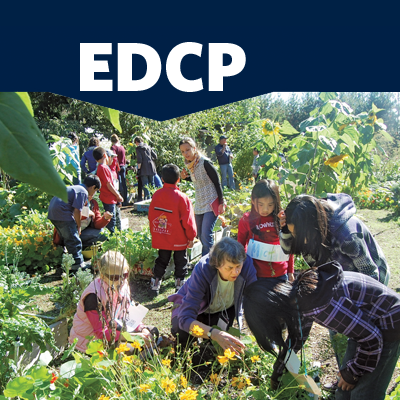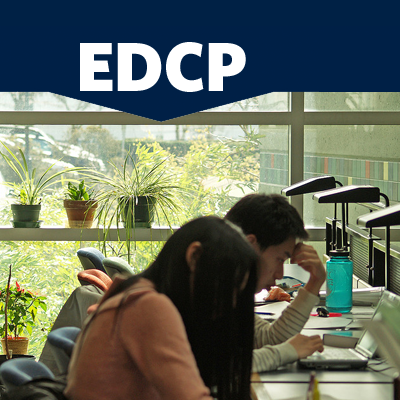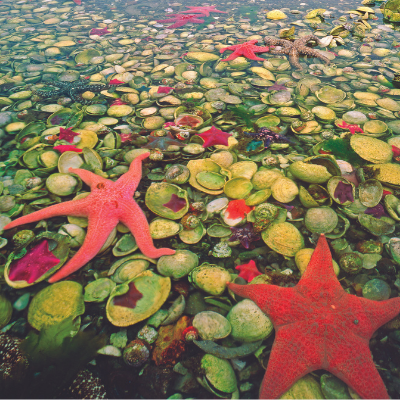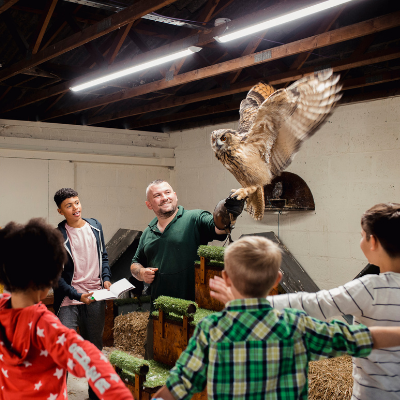
Certificate – SoTL Leadership in Higher Education
International Faculty SoTL Leadership Program: UBC Certificate on Curriculum and Pedagogy in Higher Education
Universities around the world recognize the importance and complexity of offering high quality and high engagement student learning experiences in diverse and internationally-responsive undergraduate and graduate programs. Senior educational leaders are thus increasingly required to account for research-informed, evidence-based, effective, efficient and strategically aligned curriculum and pedagogical practices.
In response to these scholarly, professional and institutional challenges, The International Faculty SoTL Leadership Program: UBC Certificate on Curriculum and Pedagogy in Higher Education prepares senior educational leaders to develop expertise in scholarly approaches to, and the scholarship of curriculum and pedagogical practices in complex higher education settings.

Certificate in Education – Health & Wellness
This program is consistent with a global movement that recognizes healthy children and youth are better able to learn and that schools are well suited to be able to influence students’ health. Given initiatives such as HealthySchools and ActNowBC, this program contributes to the ongoing development of knowledge and skills in the area of Health Education for current educators.

Certificate in Education – Textiles Studies
A Collaboration with Kwantlen University College
This program is designed for teachers of textile studies who want to strengthen their knowledge in the area, or for teachers who want to develop expertise for the teaching of textile studies.The certificate program consists of five courses – three from UBC, and two from Kwantlen.

Diploma in Education – Health Education
This Health Education program is designed for educators currently working in health education programs in school and non-school settings. Applicants may choose a program emphasis on education in either school or non-school settings.
This Diploma may incorporate the Certificate in Health and Wellness.

Diploma in Education – Mathematics Education
Participants in the Mathematics Education program will gain experience in and subject expertise and knowledge of the teaching of mathematics at the school level. The program is open to teachers and professionals in related areas.

Diploma in Education – Outdoor Environmental Education
This program is designed for teachers who wish to specialize in using the natural outdoor environment for integrated learning experiences for students.

Diploma in Education – Technology Studies
The Technology Studies Diploma in Education program is designed to allow teachers of technology subjects to focus on new or established areas of curricular significance in order to enhance their knowledge of existing curricular topics and to develop new areas of curriculum. The diploma requirement is 30 post-baccalaureate credits, and its flexibility makes it a viable option to the masters program. The difference between the two is that in the diploma program students can take 12 credits of senior–level technical courses from BCIT, Emily Carr, or other design and technical institutions.

Diploma in Education – Visual & Performing Arts
The diploma program in Visual and Performing Arts in Education may be just the kind of cross-disciplinary or integrated approach you have been looking for. It is designed to achieve breadth in the arts by offering combinations of art, dance, drama, and music courses.
Diploma students opting for a Visual and Performing Arts in Education program complete courses from three of the four arts disciplines.

Diploma in Education – Art Education
Within UBC’s overall program in art education, is a faculty commitment to ongoing in–service for art teachers. Whenever possible, practicing teachers are encouraged to upgrade their expertise and qualifications by returning to UBC for additional courses.
Students enrolled in the Art Education diploma must complete 18 credits of courses in art education at the 300/400 level, with the remaining 12 credits chosen from any 300/400 level approved courses in the Faculties of Arts and/or Education.

Diploma in Education – Curriculum & Instructional Studies
A 30 credit Diploma in Education – Curriculum and Instructional Studies will enable teachers to explore new fields of curricular or instructional study or to further their studies in a field of interest for professional purposes. It permits students to focus primarily on curriculum questions or on instructional questions, or to work in both areas.

Diploma in Education – Home Economics Education
Home economics teachers are in high demand in BC and Canada. Whether you are a home economics teacher who wishes to further your specialization expertise, or you are a qualified teacher who wishes to add a specialization in home economics, the Home Economics Diploma in Education program can assist you.
The Diploma in Education is a 30 credit post-degree program designed to help teachers extend and deepen their knowledge of theory and pedagogy related to the teaching of home economics in schools. Teachers who complete their diploma may apply to the Teacher Qualification Service for a qualification upgrade.

Diploma in Education – Physical Education
The Physical Education specialization is designed for elementary teachers who wish to extend their knowledge of curriculum and instructional aspects of kindergarten, primary, and/or intermediate level physical education. This program will benefit teachers who are developing their own class curricula and teachers wishing to become resource persons for physical education at a school or district level.

Doctor of Philosophy (PhD) – Curriculum Studies
The PhD in Curriculum Studies is a flexible, research-oriented doctoral program designed for students interested in curricular and pedagogical issues within educational settings. Two 3-credit doctoral seminars are offered in the Program as required courses. In addition to these six credits, one is required to take two research methodology and two specialization courses (12 credits total). Students select courses in consultation with their faculty supervisors or program advisory committee, based on prior academic work and research interests. Students in the PhD program typically are expected to complete coursework in the first 18 months of their program and reach candidacy within 24 months before starting their dissertation research. Students are expected in the next two years to develop and carry out a research project designed to make an original contribution to knowledge in the area of specialization. The university allows doctoral students up to six years to complete program requirements, however students are encouraged to complete their programs in four years.

Master of Arts (MA) – Art Education
Our mission is to inspire, engage and provoke educators to understand, inquire into, and model curricular and pedagogical possibilities of deep involvement with the visual arts in culture and society. Within a large research orientated university situated on traditional Musqueam land, the Art Education Program strives to:
Stimulate and conduct research within a vibrant and collaborative research community that focuses on methodologies and content relevant to the visual arts in culture and society.
Provide for, model, and develop socially responsible and ecologically aware exemplary teaching practices in and across contexts with a focus on the visual arts in culture and society.
Provide leadership, and engage with local, national, and international arts and culture organizations and professionals.
The research interests of faculty in Art Education are diverse. They encourage a wide spectrum of student inquiry: art based research, a/r/tography, art curriculum, early childhood, teacher education, First Nations art and education, histories of art education, multiculturalism, museum and gallery education, perception and cognition, studio practices, technology and visual culture, theory/practice relationships, and gender studies.

Master of Arts (MA) – Curriculum Studies
Curriculum Studies includes, but is not limited to investigations into: teacher education, the social construction or knowledge, curriculum and instructional discourses, and the role of curriculum and curricular reform in K–12 and other learning environments. Students learn about issues of planning and development, program implementation and evaluation, and pre-service teacher education. Inquiry in the field is multidisciplinary and includes numerous perspectives and orientations such as: cultural studies, historical consciousness, post structuralism, feminism, multicultural education, semiotics, and critical theory.

Master of Arts (MA) – Home Economics Education
Graduate studies in Home Economics Education is a small but very lively program. Over the years Home Economics faculty have worked closely in areas of shared interest in research and practice with colleagues throughout the Faculty of Education and related units across campus. Interests include global education, critical inquiry, food, health, environment, and inquiry into practice.
The Department of Curriculum and Pedagogy offers a PhD concentration and MA and MEd specializations in Home Economics Education, along with a secondary Teacher Education (BEd) major and Diploma in Home Economics Education.

Master of Arts (MA) – HOPE (Health, Outdoor and Physical Education)
HOPE (Health, Outdoor and Physical Education) offers courses which include integrated/thematic approaches in outdoor environmental, leadership or experimental education programs; active living, health promotion and wellness; movement education; teaching games for understanding; inclusive models of education for equity and justice. Teachers interested in secondary physical education, sports specific instruction, or coaching may enroll in courses within the School of Human Kinetics.

Master of Arts (MA) – Mathematics Education
The graduate programs (MEd & MA) in Mathematics Education are part or the graduate offerings in the Department of Curriculum and Pedagogy. Students can pursue a wide variety of research and professional interests in mathematics teaching and learning. The math education program has a legacy of large-scale research projects, such as the Early Numeracy Project and the Trends in International Mathematics and Science Study (TIMMS), which involve a network of regional, national, and international scholars. For information on research into complexity, please see the Complexity and Education site.

Master of Arts (MA) – Media and Technology Studies Education
Technology Studies Education provides a forum for exploring and studying information and communication technologies (ICT), new media, and the philosophy of technology. Curriculum, pedagogy, research, and development interests of faculty and students include affective computing, cyberculture and cyborg relations, digital ecology and diversity, distributed cognition, gaming, ICT integration in K–16 formal and informal learning environments (face-to-face, hybrid, and online distance education), intellectual property, open source, and cultural studies. The program offers a common core of courses, a range of electives, and a variety of professional education opportunities.

Master of Arts (MA) – Music Education
Situated spectacularly at the western edge of the culturally vibrant city of Vancouver, the University of British Colombia offers exciting opportunities for graduate study in Music Education.
UBC graduate programs in Music Education are designed to meet a variety of needs and interests, including those of the busy professional teacher, the researcher, the administrator, the curriculum developer, and the future university professor. Specializations include conducting, music pedagogy, early childhood music, curriculum development, cultural studies, music and media studies, music and related technologies, and teacher education.
Music Education faculty members have a wide range of research interests and specialties, using methods that are both qualitative (based in philosophy, history, psychology, sociology, arts-based educational research, and a/r/tography) and quantitative (involving quasi-experimental research, survey research, and large-scale multivariate designs). Courses across the university are also available to our graduate students, and cross-faculty inquiry is actively encouraged.
UBC Music Education graduates have successful careers and have risen to leadership positions in North America, Europe, and Asia.

Master of Arts (MA) – Science Education
Our graduate programs in Science Education offer students opportunities to pursue a wide range of research and professional interests in the areas of science education, including teacher education, learning and teaching at elementary, secondary, and post-secondary levels and in diverse contexts, such as museums and other institutions and technology-enhanced settings. Current research projects includes the Intergenerational Landed Learning on the Farm project.

Master of Arts (MA) – Social Studies Education
Social Studies prides itself in offering a rich environment with unparalleled opportunities for graduate students desiring a wide range of backgrounds and interests including visual culture, anti-oppressive education, gender studies, historical consciousness, moral education, and the history and politics of curriculum. In addition to the required coursework, a vibrant graduate student community is fostered through speaker series, research centres, seminars, and study groups. Many social studies faculty and students are actively involved in the Centre for the Study of Historical Consciousness and the History Education Network (a seven-year project, sponsored by a $2.1 million SSHRC Strategic Knowledge Clusters Grant awarded in March of 2008).

Master of Education (MEd) – Art Education
Our mission is to inspire, engage and provoke educators to understand, inquire into, and model curricular and pedagogical possibilities of deep involvement with the visual arts in culture and society. Within a large research orientated university situated on traditional Musqueam land, the Art Education Program strives to:
Stimulate and conduct research within a vibrant and collaborative research community that focuses on methodologies and content relevant to the visual arts in culture and society.
Provide for, model, and develop socially responsible and ecologically aware exemplary teaching practices in and across contexts with a focus on the visual arts in culture and society.
Provide leadership, and engage with local, national, and international arts and culture organizations and professionals.
The research interests of faculty in Art Education are diverse. They encourage a wide spectrum of student inquiry: art based research, a/r/tography, art curriculum, early childhood, teacher education, First Nations art and education, histories of art education, multiculturalism, museum and gallery education, perception and cognition, studio practices, technology and visual culture, theory/practice relationships, and gender studies. For more information on research in art education, please see the a/r/tography site.
The University of British Columbia Art Education Program ranks in the top eight in North America and is one of two PhD programs in Canada (Concordia is our counterpart).

Master of Education (MEd) – Curriculum and Leadership
This is a collaborative program involving two departments: the Department of Educational Studies and the Department of Curriculum and Pedagogy. The Program was created in response to increasing interest in the study of a combination of curricular leadership on the one hand, and organizational leadership in schools on the other. The applicants for this collaborative program will be teachers in K–12 education who wish to increase their level of understanding and skill in both areas. Upon completion of the program, the students will assume positions of formal or informal leadership in schools, making important contributions to the education of children.

Master of Education (MEd) – Curriculum Studies
Curriculum Studies includes, but is not limited to investigations into: teacher education, the social construction or knowledge, curriculum and instructional discourses, and the role of curriculum and curricular reform in K–12 and other learning environments. Students learn about issues of planning and development, program implementation and evaluation, and pre-service teacher education. Inquiry in the field is multidisciplinary and includes numerous perspectives and orientations such as: cultural studies, historical consciousness, post structuralism, feminism, multicultural education, semiotics, and critical theory.

Master of Education (MEd) – Home Economics Education
Graduate studies in Home Economics Education is a small but very lively program. Over the years Home Economics faculty have worked closely in areas of shared interest in research and practice with colleagues throughout the Faculty of Education and related units across campus. Interests include global education, critical inquiry, food, health, environment, and inquiry into practice.
The Department of Curriculum and Pedagogy offers a PhD concentration and MA and MEd specializations in Home Economics Education, along with a secondary Teacher Education (BEd) major and Diploma in Home Economics Education.

Master of Education (MEd) – Mathematics Education
The graduate programs (MEd & MA) in Mathematics Education are part or the graduate offerings in the Department of Curriculum and Pedagogy. Students can pursue a wide variety of research and professional interests in mathematics teaching and learning. The math education program has a legacy of large-scale research projects, such as the Early Numeracy Project and the Trends in International Mathematics and Science Study (TIMMS), which involve a network of regional, national, and international scholars.

Master of Education (MEd) – Media and Technology Studies Education
Technology Studies Education provides a forum for exploring and studying information and communication technologies (ICT), new media, and the philosophy of technology. Curriculum, pedagogy, research, and development interests of faculty and students include affective computing, cyberculture and cyborg relations, digital ecology and diversity, distributed cognition, gaming, ICT integration in K–16 formal and informal learning environments (face-to-face, hybrid, and online distance education), intellectual property, open source, and cultural studies. The program offers a common core of courses, a range of electives, and a variety of professional education opportunities.

Master of Education (MEd) – Music Education
Situated spectacularly at the western edge of the culturally vibrant city of Vancouver, the University of British Colombia offers exciting opportunities for graduate study in Music Education.
UBC graduate programs in Music Education are designed to meet a variety of needs and interests, including those of the busy professional teacher, the researcher, the administrator, the curriculum developer, and the future university professor. Specializations include conducting, music pedagogy, early childhood music, curriculum development, cultural studies, music and media studies, music and related technologies, and teacher education.
Music Education faculty members have a wide range of research interests and specialties, using methods that are both qualitative (based in philosophy, history, psychology, sociology, arts-based educational research, and a/r/tography) and quantitative (involving quasi-experimental research, survey research, and large-scale multivariate designs). Courses across the university are also available to our graduate students, and cross-faculty inquiry is actively encouraged.
UBC Music Education graduates have successful careers and have risen to leadership positions in North America, Europe, and Asia.

Master of Education (MEd) – Physical Education
This master’s program is offered to physical educators who are ready to move up a gear by refining and expanding their ideas of teaching, learning and knowing. Using Teaching Games for Understanding (TGfU) as a catalyst for thinking about ontological and epistemological issues in physical education, teachers will start to explore constructivist, student-centered and holistic approaches as possibilities for their own practice.
They will also examine their position on continuums of belief from inclusion to elitism, transaction to transmission, integration to dualism, tactical understanding to skill acquisition, discovery to representation, concepts to techniques and finally between demonstration and creation of understanding rather than mastery.
It has long been argued that research by teachers about their own classroom and school practices functions as a powerful mechanism for professional change, as it generates new ways of thinking about practice. The first cohort (2009-2011) focused on TGfU research and published an edited book titled ‘Reconceptualizing PE through TGfU’ (2012) made up of condensed versions of their final graduating projects.
This has started a change that should generate health and sustainable programs of teacher research, distributed across schools, teacher groups, school-university partnerships and regional and national forums. This master’s program focusing on physical education is advertising the third cohort to begin in June 2014.
Our internationally known program instructors have built upon the practical ideas, shared research, and reflections that presenters brought to the 2008 International TGfU Conference at UBC. Courses and texts will examine current teaching perspectives, constructs of ability, and curriculums, move into analyzing TGfU from pedagogical and learning theory perspectives, and finally, consider, define, and implement developmentally appropriate TGfU activities.

Master of Education (MEd) – Science Education
Our graduate programs in Science Education offer students opportunities to pursue a wide range of research and professional interests in the areas of science education, including teacher education, learning and teaching at elementary, secondary, and post-secondary levels and in diverse contexts, such as museums and other institutions and technology-enhanced settings. Current research projects includes the Intergenerational Landed Learning on the Farm project.

Master of Education (MEd) – Social Studies Education
Social Studies prides itself in offering a rich environment with unparalleled opportunities for graduate students desiring a wide range of backgrounds and interests including visual culture, anti-oppressive education, gender studies, historical consciousness, moral education, and the history and politics of curriculum. In addition to the required coursework, a vibrant graduate student community is fostered through speaker series, research centres, seminars, and study groups. Many social studies faculty and students are actively involved in the Centre for the Study of Historical Consciousness and the History Education Network (a seven-year project, sponsored by a $2.1 million SSHRC Strategic Knowledge Clusters Grant awarded in March of 2008).

Master of Education (MEd) – Curriculum Studies | Health, Outdoor, & Physical Experiential Education In-Person Cohort
This cohort will be of interest to health, outdoor and physical educators who work in schools and other sites of learning, including health promotion agencies, community health services, and environmental and recreational organizations.
This MEd cohort is timely, as many educators and professionals move away from instrumental hierarchical approaches in order to engage students and communities in participatory cultures.

Master of Education (MEd) – Curriculum Studies | Kootenays Blended Cohort
This unique MEd in Curriculum Studies, with a focus on Practitioner Inquiry and Place-Conscious Pedagogies, takes into account a diversity of perspectives, pedagogies, and conceptions of curriculum. This part-time graduate cohort takes place in Nelson, BC in a blended format (online September – June with in-person summer courses).
This program offers students opportunities to examine, theoretically and experientially, the multiple and complex relations between teaching, learning, place, and the potential realization of social justice in local contexts.

Master of Education (MEd) – Home Economics Education Online Cohort
This online graduate program delves into key aspects of Home Economics curriculum with connections to Applied Design, Skills, and Technologies (ADST) curriculum, Textile Arts, and Culinary Arts.
This program has been designed for school and community educators who teach in areas such as food and nutrition, textiles, family studies, health, human ecology, consumer studies or related projects such as food security or school gardens.

Master of Education (MEd) – Mathematics Education Online Cohort
This MEd is a unique, fully-online program exploring approaches for constructing and living mathematics curriculum responsive to place/land and connected to community.
The program offers opportunities to study teaching and learning mathematics in diverse community contexts, and applications are welcome from a wide range of students including early childhood educators, elementary school teachers, secondary and post-secondary school teachers, and educators keen to explore creative and innovative contexts to support and inspire children and youth in mathematical inquiry in community.

Master of Education (MEd) – Media & Technology Studies Education Online Cohort
Explore the field of applied design and its relationship to learning technology in education
This masters program is ideal for teachers specializing in computer science, ICT, and technology education, as well as more generally teachers within the Applied Design, Skills, and Technologies (ADST) cluster in BC schools.
Applied learning has become an integral part of all of British Columbia’s curricula. Through the newly designed Applied Design, Skills, and Technologies (ADST) curriculum students are offered several options to develop the ability to design, make, acquire, and apply skills and technologies key for their engagement as citizens of the future.

Master of Education (MEd) – Science Education Online Cohort
A part-time fully online graduate program offered by leading UBC Science Education researchers to working professionals in Canada and beyond.
The MEd in Science Education is ideal for those seeking to make a difference in teacher education; learning and teaching at the elementary, secondary and post-secondary levels; industry; teaching and research institutions; government and private sector bodies; museums; outdoor settings and other science-based organizations.

Master of Education (MEd) – Social Studies Education Online Cohort
Curriculum, Historical inquiry, & Pedagogy (CHiP)
This program delves into key aspects of social studies curricula with connections to historical thinking, historical consciousness, visual culture, anti-oppressive and anti-racism education, gender studies, moral education, and the history and politics of curriculum.
As educators in diverse contexts, the students in this program are responsible for being and creating active citizens who work for the betterment of humanity. Issues of equity, diversity, and social justice are central to the ChiP cohort and serve as foundational lenses for interrogating social studies curriculum and pedagogy.

Master of Museum Education (MMEd)
The Master of Museum Education is a unique graduate degree program focusing on the study of education and learning that occurs in museums and other informal learning contexts. This programs draws together Museum professionals, educators and those with an interest in using the community to support teaching and learning to further their thinking and scholarship around museums as sites of education and learning.
As museums contemplate new roles within society it will be incumbent upon museum professionals, and particularly museum educators, to become catalysts for different ways of thinking about the educational roles and potentials of museums and other informal learning sites, teaching and learning in museum settings as well as exploring new relationships between museums and the broader community.
This program will provide the necessary skills and knowledge for careers as educators in informal settings such as museums, locally and globally, and to support classroom-based teachers in expanding their use of the community as a learning site. The program model is one that recognizes the need for contextualizing museum education curriculum in both home country context (which has its own unique social and political context) and in the Canadian cultural context of museum education, in which practices may be conceptualized in other beneficial ways to that of the student’s own country of origin. The end result are graduating students that are then better able to influence the systems in their own countries with strengthened capacities to introduce beneficial reforms around museum education.

Master of Museum Education (MMEd) – Online Cohort
The MMEd is a unique graduate degree program focusing on the study of education and learning that occurs in museums and other informal learning contexts (such as, art galleries, science centres, parks and historic sites).
This program draws together Museum professionals, educators and those with an interest in using the community to support teaching and learning to further their thinking and scholarship around museums as sites of education and learning.